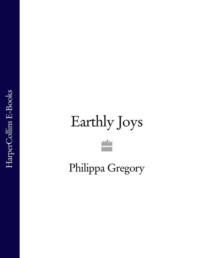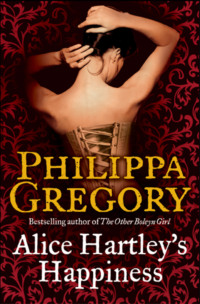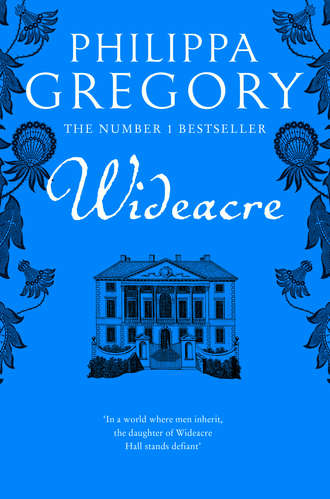
Полная версия
Wideacre

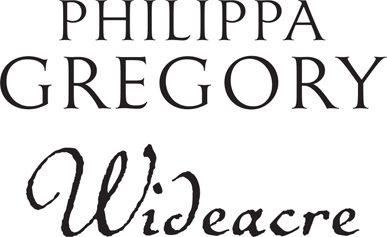

THE 30TH ANNIVERSARY
EDITION
With new foreword by the author.
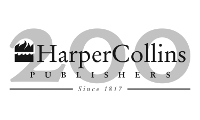
This novel is entirely a work of fiction. The names, characters and incidents portrayed in it are the work of the author’s imagination. Any resemblance to actual persons, living or dead, events or localities is entirely coincidental.
Harper
An imprint of HarperCollinsPublishers Ltd.
1 London Bridge Street
London SE1 9GF
www.harpercollins.co.uk
First published in Great Britain by Viking 1987
This edition published by HarperCollinsPublishers 2017
Copyright © Philippa Gregory Ltd 1987
Map copyright © www.old-maps.co.uk and Ordnance Survey
Cover design by Ward/MacDonald © HarperCollinsPublishers Ltd. 2017
Cover image © Archivist 2015/Alamy
Philippa Gregory asserts the moral right to be identified as the author of this work
A catalogue copy of this book is available from the British Library
All rights reserved under International and Pan-American Copyright Conventions. By payment of the required fees, you have been granted the non-exclusive, non-transferable right to access and read the text of this ebook on screen. No part of this text may be reproduced, transmitted, down-loaded, decompiled, reverse engineered, or stored in or introduced into any information storage and retrieval system, in any form or by any means, whether electronic or mechanical, now known or hereinafter invented, without the express written permission of HarperCollins ebooks
HarperCollinsPublishers has made every reasonable effort to ensure that any picture content and written content in this ebook has been included or removed in accordance with the contractual and technological constraints in operationa at the time of publication
Source ISBN: 9780008229986
Ebook Edition © APRIL 2017 ISBN: 9780007383368
Version: 2017-04-25
Contents
Cover
Title Page
Copyright
Foreword
Map
Chapter 1
Chapter 2
Chapter 3
Chapter 4
Chapter 5
Chapter 6
Chapter 7
Chapter 8
Chapter 9
Chapter 10
Chapter 11
Chapter 12
Chapter 13
Chapter 14
Chapter 15
Chapter 16
Chapter 17
Chapter 18
Chapter 19
Chapter 20
Epilogue
Philippa Gregory’s Wideacre trilogy continues with The Favoured Child and Meridon
Discover More of Philippa Gregory’s Tudor Novels
Gardens for the Gambia
About the Author
Also by Rivka Galchen
About the Publisher
Foreword
I was a young married woman, in my late twenties, living in a small town in the North of England. I had a newborn daughter and I was trying to finish my PhD thesis on the popular fiction of the eighteenth century. To prepare for this study I had read more than 200 novels published between 1740 and 1800 and had painstakingly compared the standard elements like sexual morality, the relationship to agriculture and the countryside, and the wonderfully bizarre: incest, banditti, even aliens. I believed there were identifiable themes in the novels and that they could be read together as a fictional world that sometimes mirrored eighteenth-century England, and sometimes denied and hid it.
Hoping to become an expert in the real and imaginary eighteenth-century world, I accidentally served the ideal author’s apprenticeship. Without intending it – for when I started at Edinburgh University I was 26 and really very scatty – I read myself into the art of the novel, and then started to write my own – longhand in a school exercise-type book. Where it read name I wrote my name, where it read form I wrote IVB (I had enjoyed my fourth year), and where it read subject I wrote with simple ambition: Best Selling Novel.
That was partly a joke for myself: I had been locked in a library for four years, I was ready to be amused by almost anything, but I found that I loved writing and became more and more convinced that it was a successful novel. I sent it to an agent who refused it, and then to another who accepted it. After a worldwide auction I had a three-book contract in the UK and the US, my first career path and the first steady income for the first time in my life.
I rarely tell this story because it is such an extraordinary one, it is not typical and not to be expected; and – worse – it encourages apprentice writers to think of writing as a route to fortune and fame, which it very rarely is. Writing is something so much more: the route to working in the finest and most accessible art form in the world.
It is an honour to work as a novelist, I have been learning my trade and practising my skills (for it is also a craft as well as an art) for thirty years – as this anniversary edition shows. To write a novel is to dedicate yourself to an art form which is universally and frequently enjoyed. The first novels I read were borrowed from the library, I bought my beloved collection of second-hand books for small change, and now I can read almost any published fiction in the world at the touch of a button. No other art form is so widely available, so regularly experienced by its audience, and so easily accessed.
Reading a novel is an exercise that is escapist – I tumble deep into the story, immerse myself in the fiction, and yet it has a powerful relationship to the real world. Even at the end of a story that is wholly imaginary there may be a sense of truth or a sense of powerful authentic emotion. I feel oddly contented when I have read a good novel. Not for the outcome of the story (though I admit to an unrefined preference for happy endings) but because something about the measured unfolding gives me a sense of delight.
This sensation of joy sometimes comes to me when I am writing too. On a very good day I experience what I am describing: I am both here in my study with the view of the North York moors and the wide northern sky above them, and here at the court, in the little room, in the cell, in the garden, on the streets of medieval London.
I love storytelling, which is an archaic art buried deep in human nature. I imagine a tribe, perhaps as old as those who drew massive imaginary beasts in the light of flickering torches, who pressed their own hand prints beneath the delicate hooves, gathering around the fire to tell stories that warn of poisonous berries, of betrayal, of the hidden snake. The stories perform that uniquely human gift – carrying an idea from one mind to another in complexity and with emotion. Stories conquer death – tell a story about someone well and there he is, returned to life, laughing so hard with his arm around his brother that he can hardly stand. Laughing: though the joke is old and he died a hundred years ago. But if I describe him so that you can see him and hear him, in what way is the joke old? In what way is he dead? I love stories for the same reason as I love history, because they have a powerful life in the temporal world – and they transcend it.
This resonates particularly with me because I was brought up by my mother on stories of lost landscapes – the house of her sunny privileged childhood in the years before the First World War. Before I even read the thousands and thousands of novels of gilded regret, before I read the history, I knew of those days of peace. By the time I came to E.M. Forster and Virginia Woolf I had already walked in the lilac-scented night, and looked out of the window at the cat on the mown lawn.
An imaginary world does not vanish while someone still conjures it. The beloved are not gone when they are vividly remembered. A time is never forgotten if people write history. I fell in love with history while studying as an undergraduate at the University of Sussex, and I felt that I had discovered the Meaning of Life. No more (for there is no more) and certainly no less. I had been one of those earnest, questing girls who wanted to know the answer to everything; and for me if you know how something has come about, you know what it is. I am especially drawn to mislaid and ignored histories, like the struggle against enclosure, which is the spine of the Wideacre story: the exile of the people from the land they love.
It was natural that my first novel, Wideacre, should be about a young woman who cannot bear the thought of the loss of her family home (my mother’s family’s story), who has nothing but her sexuality to gain her own ends (women’s history), who entraps her brother (such an important trope in the early novel, identified in my reading of the eighteenth-century commercial library stocks), and who is deeply and passionately invested in the Sussex landscape (a childhood love of mine). Beatrice has a wonderful horse, and this is one of the most joyful instances of my fiction foretelling my life. I swear that this occurs from time to time, my family sceptically call it ‘coincidence’. Call it what you will, but ten years after I gave Beatrice Lacey a grey gelding, I was to own my own grey gelding, and ride him over the common land around the village of Heyshott, which was the setting for Wideacre.
My novels after Wideacre developed and changed without conscious decision. I became increasingly interested in real lives and wrote novels based more and more closely on real people and on accurate history. Sometimes we don’t know the history, sometimes historians don’t agree. But when there is an agreed account, I like to illuminate, dramatize and fictionalize it. I never depart from it for the benefit of the story, the history always comes first. I developed a style of writing: first person, so that you are in someone’s shoes, facing their dilemmas, and present tense, so that you have no historians’ hindsight, you are in the then and there, not looking back. These stylistic choices have been enormously helpful and interesting to me, bringing me to a lively understanding of historical events – if you were there, not knowing how they would turn out, what would you do? – and a greater empathy with historical characters. Most of my principal characters are women: as a woman, I think I know sometimes how they feel, I sometimes experience their difficulties myself. As a feminist, I am almost always more interested in the apparently unimportant woman than the man who is standing, talking so loudly, before her. As a feminist historian, I think it is my particular calling to look and see what the women are doing at any moment in time.
This has led me a pretty dance in research as I try to discover the most basic facts, such as where a woman was living, and what she was doing, whereas traditional historians, blind to anything but big public acts, loyally and repeatedly record the sons and husbands, fathers and brothers. It has led me into a deep appreciation of the role that women – often unsung, sometimes deliberately concealed – have played in the forming of our national life. There have been heroines and martyrs, scholars and mothers, daughters and saints, sinners, poisonous domestic villains, angels in the corner and queens regnant, militant or as apparently passive as Sleeping Beauty, all astoundingly ignored. It has been an honour to spend my working life looking for and recording a version of some of them for us: their daughters, their heirs. I know that for my readers – as they tell me in their thousands – these stories are their models and heroines, examples of how far we have come, how far we still have to go. They demonstrate the courage that is part of women’s nature.
Beatrice is not one of these! Nobody exactly like Beatrice ever lived, nobody exactly like her could have lived. She is the exuberant manifestation of the imagination of a young woman, who had spent a long time – far too long – in the library, and who was eager for a rich, colourful, sensual, action-packed life. Beatrice shows ambition, passion and a complete absence of scruples. Above all – her greatest feature – she is not ladylike. Thirty years ago I was thrilled by the thought of a fictional heroine who was not ladylike. I remember both Beatrice, and her young author, with affection and no regrets.



Wideacre Hall faces due south and the sun shines all day on the yellow stone until it is warm and powdery to the touch. The sun travels from gable end to gable end so the front of the house is never in shadow. When I was a small child, collecting petals in the rose garden, or loitering at the back of the house in the stable yard, it seemed that Wideacre was the very centre of the world with the sun defining our boundaries in the east at dawn, until it sank over our hills in the west in the red and pink evening. The great arch it traced in the sky over Wideacre seemed to me a suitable boundary for our vertical influence. Behind the sun was God and the angels; beneath it, and far more significantly, ruled the Squire, my father.
I cannot remember a time before I loved him, the blond, red-faced, loud Englishman. I suppose there must have been a time when I was confined to a white-frilled crib in the nursery; I suppose I must have taken my first steps clinging tight to my mother’s hand. But I have no childish memories of my mother at all. Wideacre filled my consciousness, and the Squire of Wideacre dominated me as he ruled the world.
My first, my earliest childhood memory is of someone lifting me up to my father as he towered above me in the saddle of his chestnut hunter. My little legs dangled helplessly as I rose up the yawning void to the great chestnut shoulder – a hot, red rockface to my surprised eyes – and up to the hard, greasy saddle. Then my father’s arm was tight round my body and his hand tucked me securely before him. He let me grip the reins in one hand and the pommel in the other, and my gaze locked on the coarse russet mane and the shiny leather. Then the monster beneath me moved and I clutched in fright. His pace was erratic and rolling to me, and the long gap between each great stride caught me unawares. But my father’s arm held tight and I gradually raised my eyes from the muscled, steamy shoulder of the mountainous horse, up his long neck to his pointy signalling ears … and then the sweep of Wideacre burst upon me.
The horse was walking down the great avenue of beech and oak that leads to the house. The dappled shadows of the trees lay across the springing grass and the rutted mud tracks. In the banks glowed the pale yellow of spring primroses and the brighter sunshine yellow of celandine. The smell, the dark, damp smell of rain-wet earth filled the arch of the trees like birdsong.
A drainage ditch runs alongside the drive, its yellow stones and white sand rinsed clean by the trickle of water. From my rolling vantage point I could at last see a clear view of its length, even where the black leafmould at the banks carried the tiny, forked hoofprints of nighttime deer.
‘All right, Beatrice?’ My father’s voice behind me was a rumble I could feel in my tense, skinny little body as well as hear. I nodded. To see the trees of Wideacre, to smell the earth of it, to be out among the breath of wind of Wideacre, bonnetless, carriageless and motherless, was beyond words.
‘Like to try a trot?’ he asked.
I nodded again, tightening my small hands on the saddle and reins. At once the giant strides altered and all around me the trees lurched and jigged as the horizon moved in great sickening leaps. I bobbed like a cork in a spring-flood river, sliding painfully to one side, and then, perilously, correcting. Then I heard my father click to the horse and the stride lengthened. Wonderfully, the horizon steadied, but the trees sped past. I regained my balance and, though the ground flashed by under the thudding hoofs, I could breathe and look around again. Your first canter is the fastest speed you will ever go. I clung like a louse to the saddle and felt the spring wind in my face, and saw the shadows of the trees flash light and shade across me as the chestnut mane streamed, and I could feel a great burble of delighted laughter and scream of fear gather in my throat.
On our left the woods were thinning and the steep bank dropped away, so I could see through the trees to the fields beyond, already brightening with the spring growth. In one a hare, large as a hound puppy, stood on its hind legs to watch us go by, its black-tipped ears pointed to hear the thud of the hoofs and the jingle of the bit. In the next field a line of women, drab against the deep black of the ploughed field, bent double over the furrows, picking, picking, picking, like sparrows on the broad back of a black cow, clearing the earth of flints before sowing.
Then the sliding scenery slowed and slowed as the hunter dropped into a teeth-chattering trot again, and then pulled up at the closed gates. A woman erupted from the open back door of the lodge house and scuttled through a scatter of hens to swing open a tall iron gate.
‘A fine young lady you have to ride with you today,’ she said smiling. ‘Are you enjoying your ride, Miss Beatrice?’
My father’s chuckle vibrated down my spine, but I was on my dignity, high on the hunter, and I merely bowed. A perfect copy, had I known it, of my mother’s chill snobbery.
‘Say good day to Mrs Hodgett,’ my father said abruptly.
‘Nay!’ said Mrs Hodgett, chuckling. ‘She’s too grand for me today. I’ll have a smile on baking day though, I know.’
The deep chuckle shook me again, and I relented and beamed down on Mrs Hodgett. Then my father clicked to the hunter and the smooth walk bore me away.
We did not turn left down the lane that leads to Acre village as I had expected, but went straight ahead, up a bridle track where I had never been before. My excursions until now had been in the carriage with Mama or in the pony-cart with Nurse, but never on horseback along the narrow green ways where no wheels could go. This path led us past the open fields where each man of the village could farm his own strip in a ragged, pretty patchwork. My father tutted under his breath at the ill-dug ditch and the thriving thistles in one patch and the horse, eager for a signal to canter, broke forward again. His easy strides took us higher and higher up the winding path, past deep banks dotted with wild flowers and with exciting-looking small holes, crowned with hedges of budding hawthorn and dogroses.
Then the banks fell away, and the fields and hedges with them, and we were riding, silent on thick leafmould, through the beech coppice that crowds the lower slopes of our downs. Tall, straight, grey trunks rose high as a cathedral nave. The nutty, woody smell of beech tickled my nose, and the sunlight at the end of the wood looked like the bright mouth of a cave, miles and miles away. The hunter, blowing now, rushed upon it, and in seconds we were out in the brilliant sunlight at the very tipmost-topmost point, the highest peak in the entire world, the pinnacle of the South Downs.
We turned to look back over the way we had come and the shape and the setting of Wideacre opened up to me, like a magical page in a picture book, seen for the first time.
Closest to us, and extending far below us, were the green, sweet slopes of the downs, steep at the top, but easy as soft shoulders lower down. The gentle wind that always blows steady and strong along the top of the downs brought the smell of new grass and of ploughing. It flattened the grass in patches like seaweed tossing under currents of water, first one way, then another.
Where the ground grew steep and broken, the beech coppices had taken hold and now I could look down on them, like a lark, and see the thick tops of the trees. The leaves were in their first emerald growth and chestnuts showed fat, mouth-watering buds. The silver birches shivered like streams of green light.
To our right lay the dozen cottages of Acre village, white-washed and snug. The vicarage, the church, the village green and the broad, spreading chestnut tree that dominates the heart of the village. Beyond them, in miniature size like crumpled boxes, were the shanties of the cottagers who claimed squatters’ rights on the common land. Their little hovels, sometimes thatched with turf, sometimes only a roofed-in cart, were an eyesore even from here. But to the west of Acre, like a yellow pearl on green velvet, amid tall, proud trees and moist, soft parkland, was Wideacre Hall.
My father slipped the reins from my fingers and the great head of his horse dipped suddenly to crop the short turf.
‘It’s a fine place,’ he said to himself. ‘I shouldn’t think there’s a finer in the whole of Sussex.’
‘There isn’t finer in the whole world,’ I said with the certainty of a four-year-old.
‘Mmm,’ he said softly, smiling at me. ‘You may be right.’
On the way home, he let me ride alone in glorious solitude on top of the swaying mountain. He walked at my side, a restraining hand gripping the frills and flounces of my petticoats. Past the lodge gates and up into the cool quietness of the drive, he loosened his grip and walked before me, looking back to bawl instructions.
‘Sit up! Chin up! Hands down! Heels in! Elbows in! Gentle with his mouth! You want to trot? Well, sit down, tighten the rein, and dig your heels in! Yes! Good!’ And his beaming face dissolved in the heaving blur as I clung with all my small might to the leaping saddle and bit back shrieks of fear.
I rode alone up the last stretch of the drive and triumphantly brought the gentle great animal to a standstill before the terrace. But no applause greeted me. My mama watched me, unimpressed, from the window of her parlour, then came out slowly to the terrace.
‘Get down at once, Beatrice,’ she said, waving Nurse forward. ‘You have been far too long. Nurse, take Miss Beatrice upstairs and change and bath her at once. All her clothes will have to be washed. She smells like a groom.’
They pulled me off my pinnacle and my father’s eyes met mine in rueful regret. Then Nurse paused in her flight towards the house.
‘Madam!’ she said, her voice shocked.
She and my mother peeled back the layers of petticoats and found my lacy flounces stained with blood at the knees. Deftly Nurse stripped them off so she could see my legs. The stitching and the stirrup-leather flaps had rubbed my knees and calves raw and they had bled.
‘Harold!’ said my mother. It was the only sign of reproach she ever permitted herself. Papa came forward and took me into his arms.
‘Why didn’t you tell me you were hurt?’ he asked, his blue eyes narrow with concern. ‘I would have carried you home in my arms, little Beatrice. Why didn’t you tell me?’



